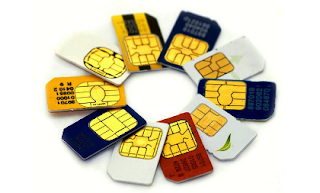A new research from a security company revealed that they expect hackers to be more aggressive in targeting mobile phones to get into bank accounts of victims and steal money.
A report by Kaspersky Labs with Interpol found that 60 percent of the malicious programs targeting Android devices between August 2013 and July 2014 were designed to steal money or banking credentials. The report focused on Android, which accounts for roughly 85 percent of the mobile device market and 98 percent of mobile malware.
Just like other online operations, hackers are expected to move into mobile because more users access the Internet from these devices. The survey of users registered with Kaspersky also found more than 588,000 Android users worldwide faced financial malware attacks, six times higher than the prior 12 months.
"It is easy to understand why cyber criminals create so many malicious programs targeting Android devices: these days, smartphones are increasingly often used as a tool to pay online for merchandise and services," the report said.
"Apps can be installed through Google Play as well as third parties such as Amazon App store. Third party apps pose a security threat to users who enable the installation of apps from unverified sources. These unverified packages may carry malware that would be installed on a device without the user’s permission or knowledge."
Kaspersky found the largest number of victims were Android users in Russia. Other countries affected included Ukraine, Spain, Britain, Vietnam, Malaysia, Germany, India and France.
Over the 12-month period, the users surveyed reported some 3.4 million malware detections. The number of monthly attacks increased tenfold from August 2013 to March 2014.
The report said the biggest growth is coming from "Trojan-Banker" and "Trojan-SMS" malware that allow hackers access to bank accounts.
"A successful Trojan-Banker infection can give a fraudster access to all of the victim’s money, while a Trojan-SMS needs to infect dozens or even hundreds of devices to show a worthwhile profit," said Kaspersky analyst Roman Unuchek.
The report comes amid growing interest in mobile payments, allowing consumers to use their phones to pay at participating stores.
Apple's mobile payments system began operating on Monday.
A report by Kaspersky Labs with Interpol found that 60 percent of the malicious programs targeting Android devices between August 2013 and July 2014 were designed to steal money or banking credentials. The report focused on Android, which accounts for roughly 85 percent of the mobile device market and 98 percent of mobile malware.
Just like other online operations, hackers are expected to move into mobile because more users access the Internet from these devices. The survey of users registered with Kaspersky also found more than 588,000 Android users worldwide faced financial malware attacks, six times higher than the prior 12 months.
"It is easy to understand why cyber criminals create so many malicious programs targeting Android devices: these days, smartphones are increasingly often used as a tool to pay online for merchandise and services," the report said.
"Apps can be installed through Google Play as well as third parties such as Amazon App store. Third party apps pose a security threat to users who enable the installation of apps from unverified sources. These unverified packages may carry malware that would be installed on a device without the user’s permission or knowledge."
Kaspersky found the largest number of victims were Android users in Russia. Other countries affected included Ukraine, Spain, Britain, Vietnam, Malaysia, Germany, India and France.
Over the 12-month period, the users surveyed reported some 3.4 million malware detections. The number of monthly attacks increased tenfold from August 2013 to March 2014.
The report said the biggest growth is coming from "Trojan-Banker" and "Trojan-SMS" malware that allow hackers access to bank accounts.
"A successful Trojan-Banker infection can give a fraudster access to all of the victim’s money, while a Trojan-SMS needs to infect dozens or even hundreds of devices to show a worthwhile profit," said Kaspersky analyst Roman Unuchek.
The report comes amid growing interest in mobile payments, allowing consumers to use their phones to pay at participating stores.
Apple's mobile payments system began operating on Monday.


No comments:
Post a Comment